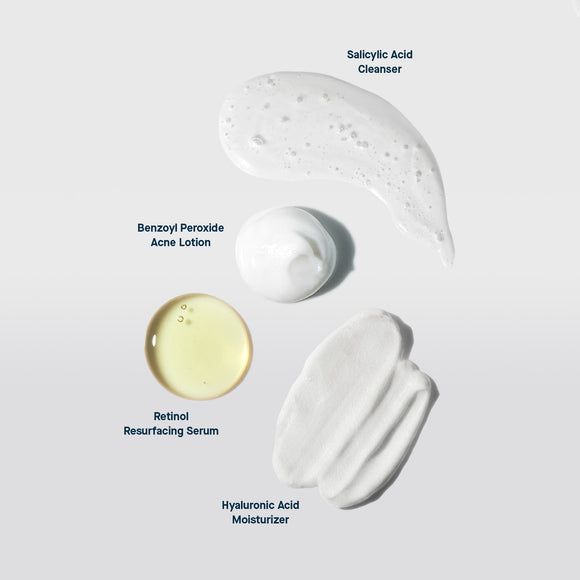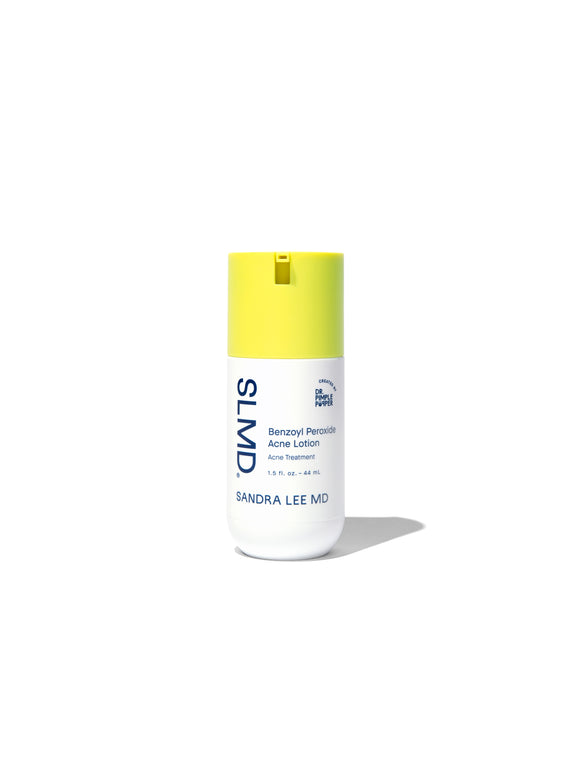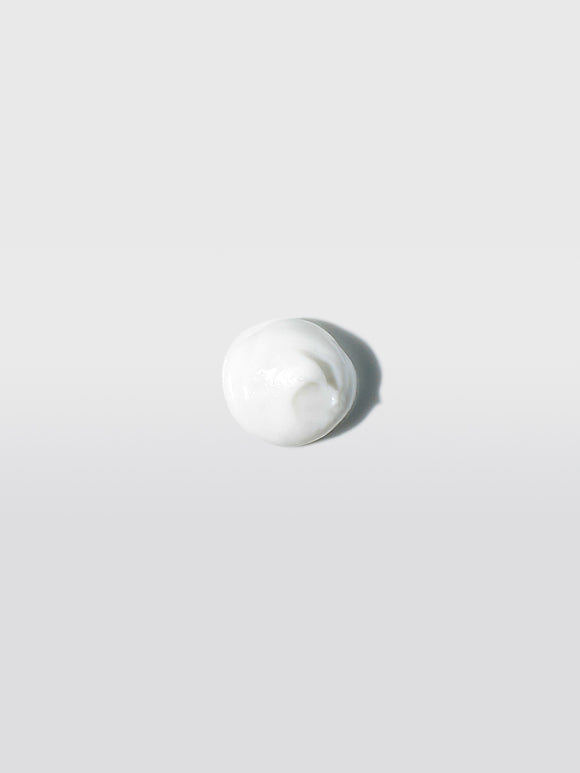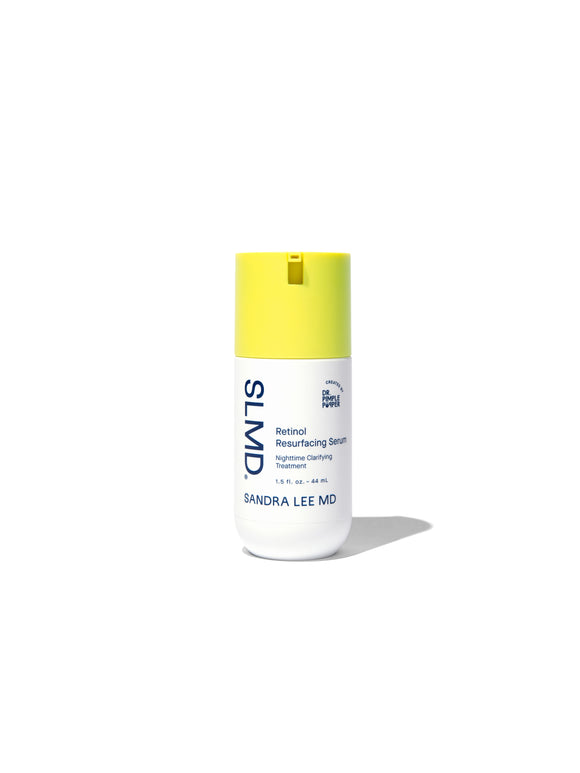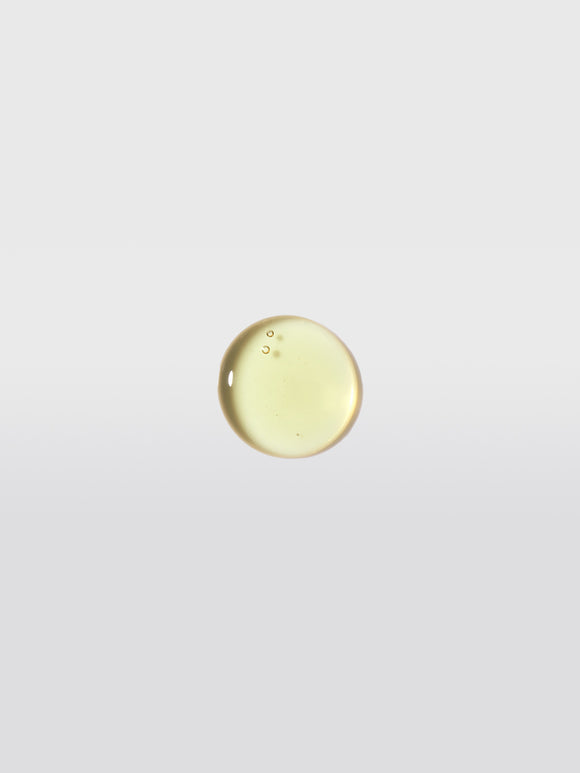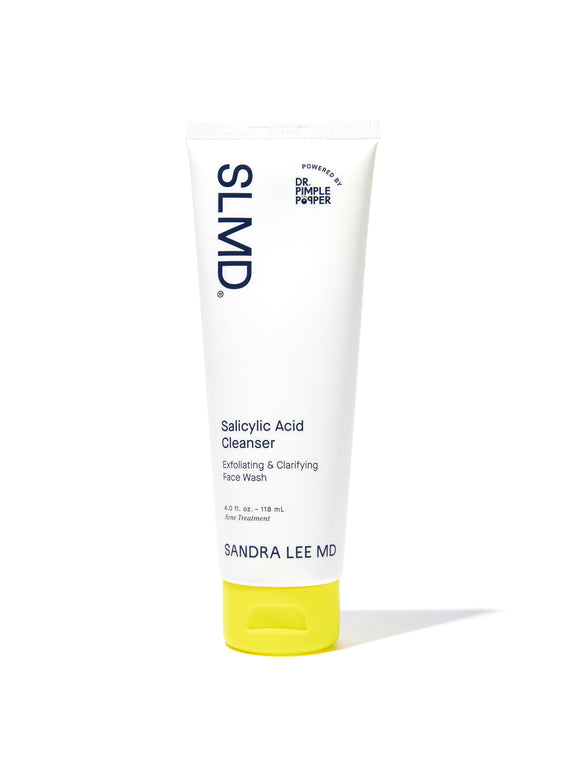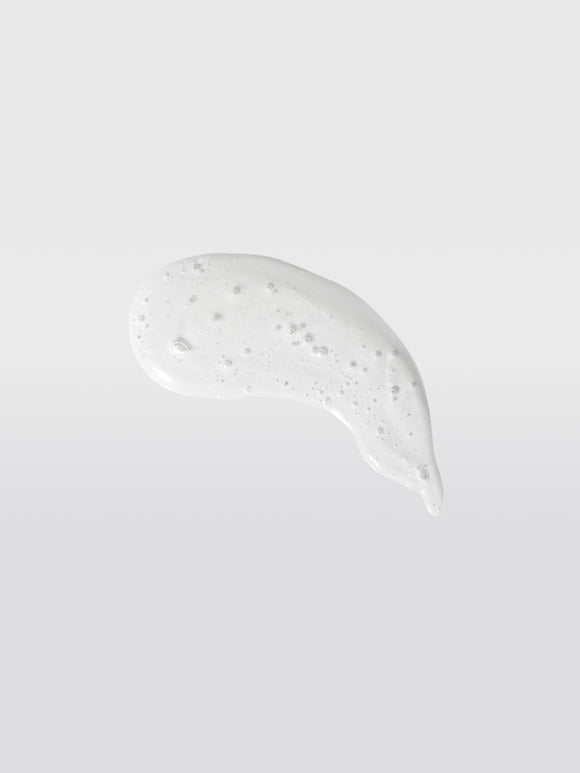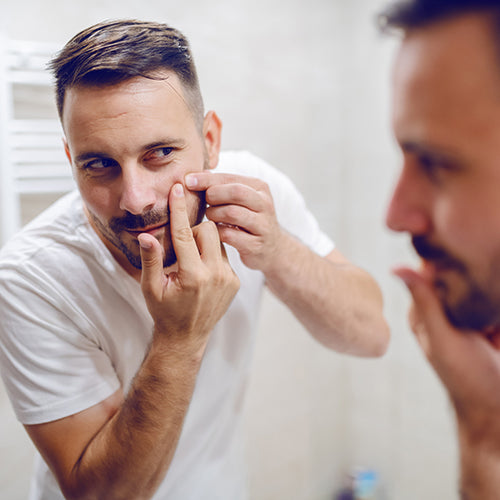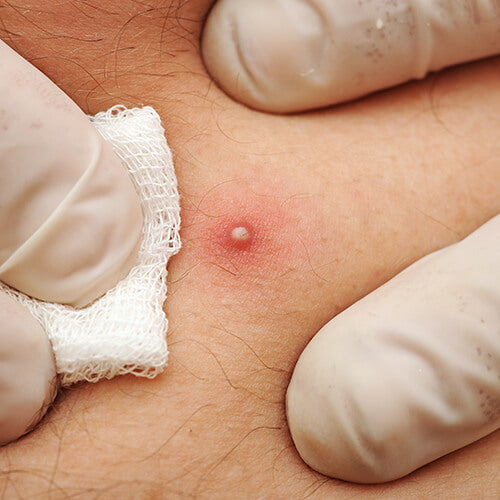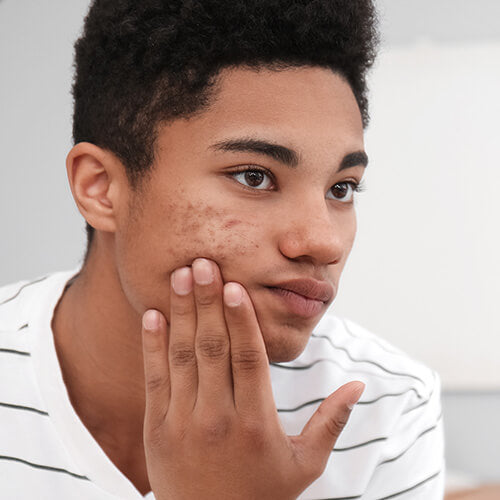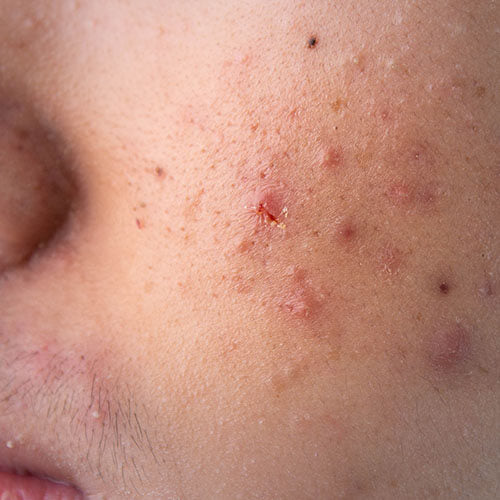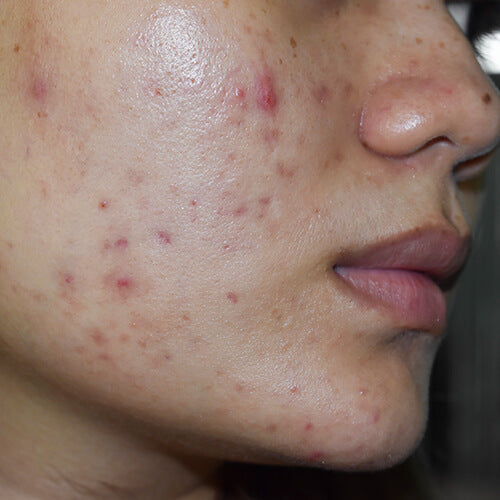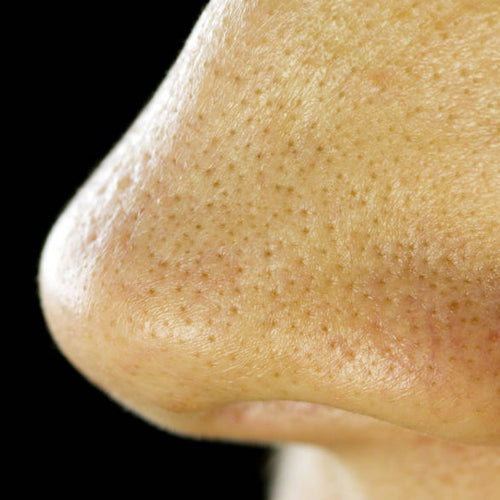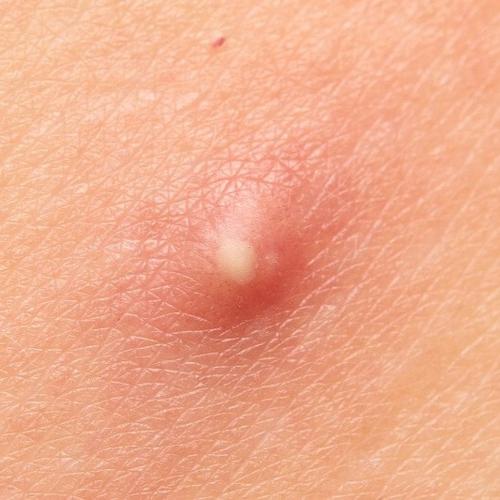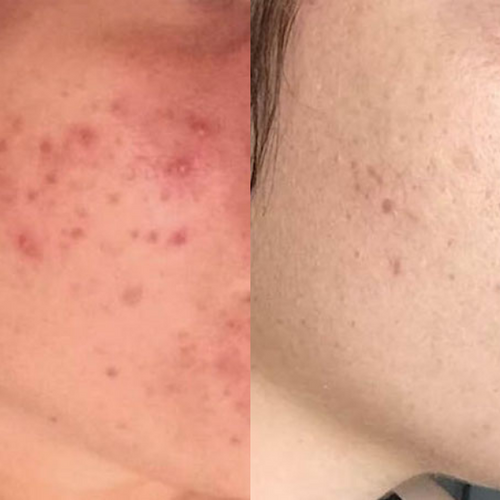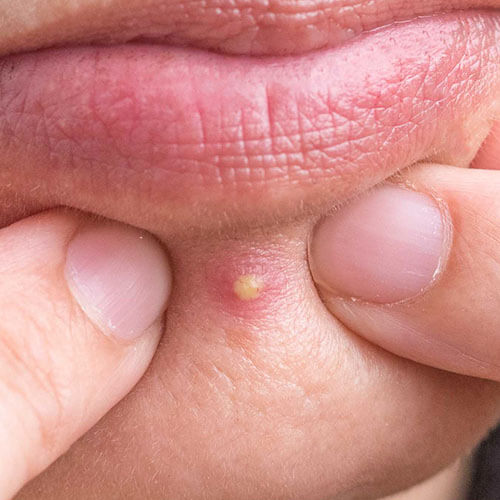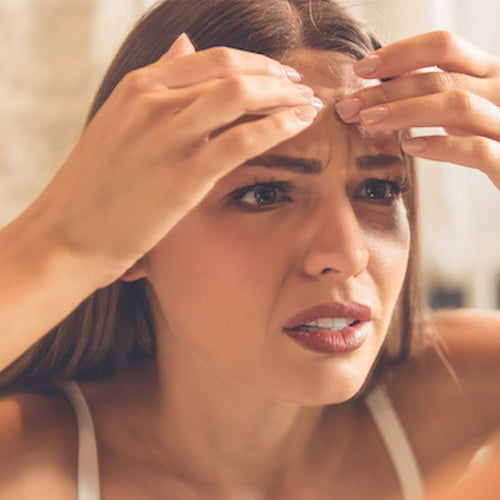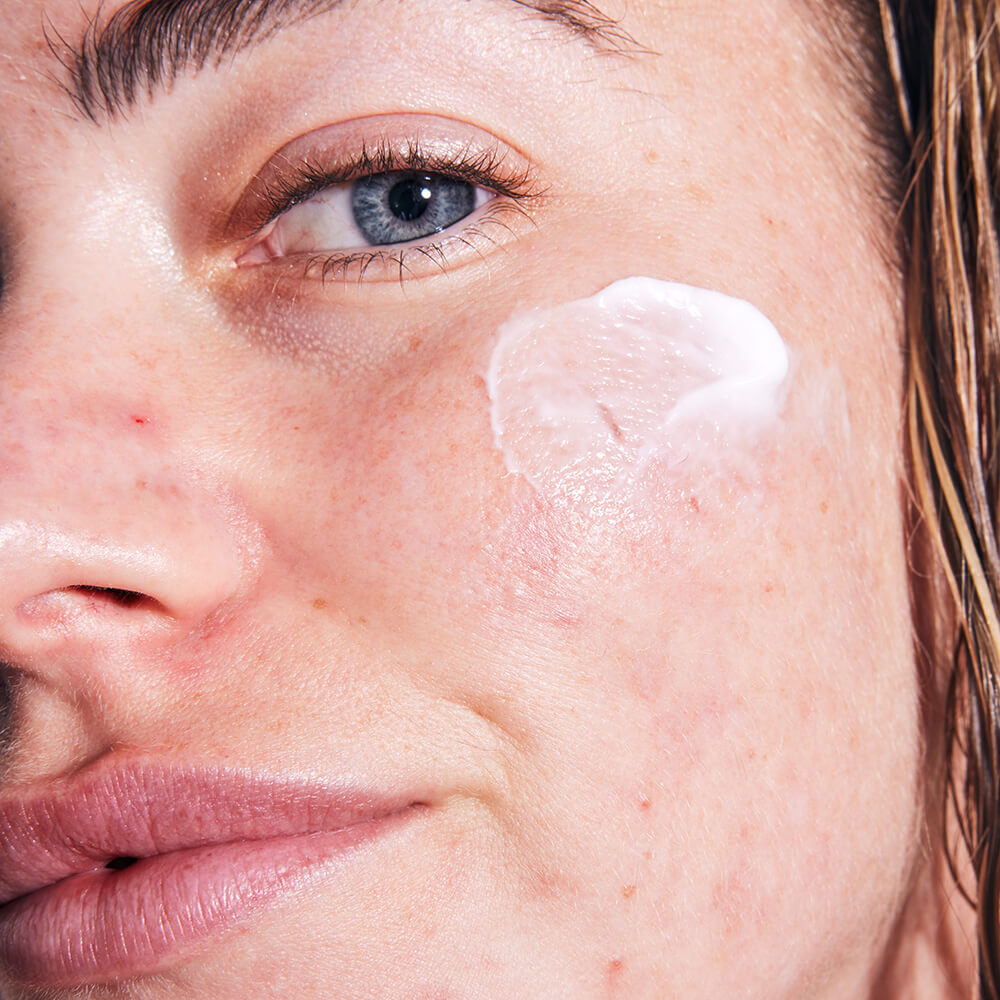
Does Hyaluronic Acid Help Acne?
This hero humectant has a host of beneficial properties, says Dr. Pimple Popper.Published:
2 minute read
If you’ve been treating your acne — and doing your research — chances are you’re well acquainted with the big three: salicylic acid, benzoyl peroxide, and retinol. These key ingredients (along with sulfur, if you’ve got sensitive skin) are essential for both treating and preventing acne at all stages.
But acne experts like dermatologist and SLMD Skincare founder Sandra Lee, MD (aka Dr. Pimple Popper) know that these treatments can lead to dryness and irritation, especially in the initial stages. That’s where a humectant like hyaluronic acid — one of Dr. Lee’s top picks — comes in. Here are four ways hyaluronic acid helps with acne treatment.
#1 It attracts water
Hyaluronic acid is a humectant, meaning it’s a molecule that attracts water and holds onto it. According to Dr. Lee, proper water balance is crucial to having a healthy skin barrier — and improving your skin barrier is essential for managing acne. That’s because C. acnes bacteria can take advantage of compromised skin. What’s more, active ingredients — particularly benzoyl peroxide — can also dry out your skin. Using an ingredient like hyaluronic acid will help break this cycle and reduce skin irritation.
#2 It’s lightweight
Oily or acne-prone skin requires hydration without adding additional heaviness or greasiness. It’s helpful to remember the difference between hydrating and moisturizing ingredients here: humectants draw in and hold water, while emollients add oil to the skin. Both are essential for healthy skin function — but typically, skin that's already producing a lot of sebum (a main driver of acne breakouts) benefits from products with humectant-forward formulas, says Dr. Lee. Hyaluronic acid is a non-comedogenic ingredient, which means it provides hydration to the skin without clogging pores and contributing to acne.
Try: SLMD Hyaluronic Acid Moisturizer, part of the 3-step Acne System.
#3 It helps control oil
Oily skin often produces excess sebum, which can contribute to the formation of acne. While it makes sense that getting rid of all that oil helps prevent pimples, you may have heard that over-washing — which dries out your skin — can lead to even more oil production. That’s because it throws off your skin’s balance. Research shows that hyaluronic acid can help regulate the skin's oil production by providing adequate hydration. When the skin is well-hydrated, it sends a signal to the sebaceous glands to produce less oil — which means potentially fewer breakouts.
#4 It soothes and repairs
If you’ve got inflammatory acne (aka pimples), it makes sense that using anti-inflammatory active ingredients can help calm and soothe your skin. Studies indicate that hyaluronic acid plays an important role in reducing inflammation and promoting the skin’s natural healing process — both key for treating acne breakouts.

Dr. Lee's Last Word
Since acne treatments can be drying, it’s especially important to use a lightweight moisturizer that’s formulated with acne-prone skin in mind. Hyaluronic acid is one of my favorite humectant ingredients because it’s naturally found in skin — so it’s well-tolerated in addition to being really effective.




